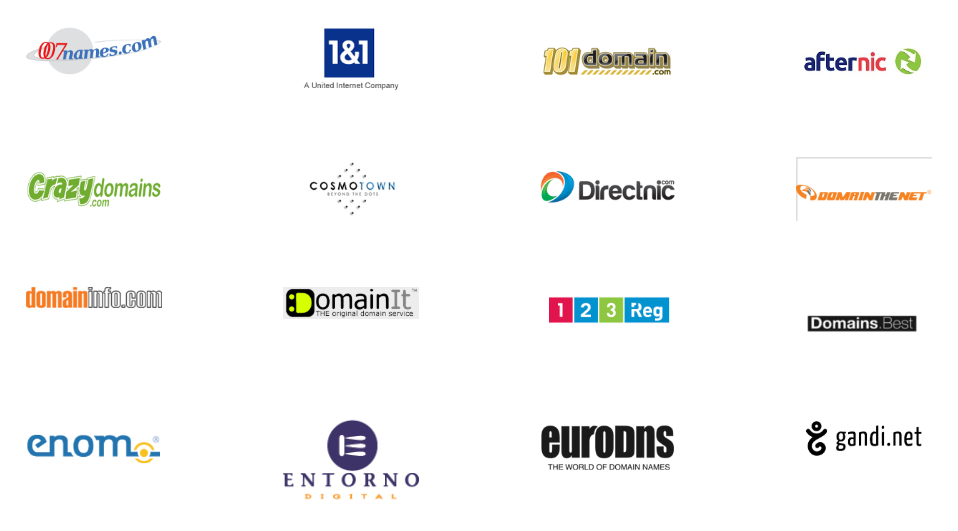New domain name endings – hidden motives for and against them

I love thoughtful debate and reflection. I love being understood and then challenged. (Being misunderstood and then challenged isn’t so much fun!) I’m comfortable having my mind changed and admitting it. More broadly, it’s a great feeling to solve a problem, knowing that all variables have been considered, feedback received, reflections contested and solutions iterated.
In the domain investing world the big issue for the last five or so years has been “What effect will new gTLDs have on the internet?”
If you’re new to this topic, in brief, about 5 years ago there was an expansion of the internet naming system – instead of .coms, .nets and .orgs over 1,000 other domain endings (e.g. .nyc, .tech and .guru) were scheduled to launch. This made some domain investors nervous and other excited. Non-domain investors (most of the world) didn’t flinch – they’re just finding out this happened!
Back then (2014-ish) there were people right out of the gate who loved them while others hated them and looked to promote every negative story they could about the new gTLDs.
To break down the differing opinions and motivations it’s important to separate some variables and highlight the biases the different stakeholders have.

ICANN / Registries / Registrars
It’s possible that these stakeholders wanted to see a more colorful and organized web as well as wanting to expand the naming system to satisfy customer demand for short keyword domains that have long been unobtainable in .com. These types of .coms were perhaps unobtainable because companies were already using those keywords or oftentimes the .com could be purchased from a domain investor, but the market had pushed the price to $xx,xxx.
It’s also very possible (likely?) that the stakeholders above were keen to launch new domain endings simply to make money themselves. Initially, with the launch of a new TLD, domain investors are the first ones to rush in with the highest chance of them losing money depending on how carefully they spent their money.

Domain Investors / Domain Brokers / Domain Podcasts / Domain Forums
Many of these stakeholders have remained balanced in their view of the changing domainscape – neither pro nor against new gTLDs. They simply provided their audience with fair and reasoned caution when investing in untested non-.com domains. They don’t want their audience to lose lots of money thinking that the launch of new gTLDs provides a time machine to the same opportunities a few seized in the 90s with .coms. In these cases there isn’t a hidden agenda nor biased reporting. Maybe they weren’t sure how things would work out and wanted to hedge or delay a verdict.
However, in some instances other investors and commentators have been pro new gTLDs. In these cases it’s important to understand if they are pushing them as a real opportunity they’d like to share or to boost the value of their own investment. They may also be pro new gTLD because of real benefits they see for the web (more meaningful, colorful and organized) and the benefits they perceive for businesses looking to register a perfect fit domain for between $10 and $50 (where the equivalent keyword as a .com would be in the thousands). Personally, although I invest in .nyc domain names and some .coms, my view is that the new gTLDs offer benefits primarily for end users and no so much domainers.
Then there are the folks in this group of stakeholders who are aggressively against new gTLDs. Not only against domainers investing in them but also against end users building a brand on them. Why are they so against new gTLDs?
Do they have that much foresight and love of their fellow domain investor that they know all new gTLDs will fail and they want to save other investors from losing their money? Plus save end users from making a huge mistake?
Well one of the most vocal against the new gTLDs is Rick Schwartz. I can understand why he is against anything that’s not .com after he infamously purchased flowers.mobi for $200,000 and sold the domain for $6,500 shortly after. In his article he states “I didn’t even know that .mobi was not spelled .moby. :-)” so Rick Schwartz spending this much money on flowers.mobi is probably not the smartest move he’s ever made.
But realistically, most domain investors aren’t going to drop $200,000 on a single domain name on an untested new gTLD – they may spend a few hundred dollars on a group of domains. So how great is the risk to them? Perhaps if they invest wisely they can carve out a niche and turn a profit.
These same critical domain investors may have good intentions steering end users away from new gTLDs if they believe they won’t rank well in Google, or if they believe their business will lose traffic from people typing in the .com version – but there is no significant evidence of this. If along with their words of caution for end users they mixed in some acknowledgement of the benefits of new gTLDs (semantic/meaningful naming, price to acquire perfect keyword, more organized web…) then it would be more reasoned and I’d be less cynical about their intentions.
So why would domain investors, like Schwartz, ignore any benefit of the new gTLDs and aggressively warn other domain investors and end users to stay away from them? Perhaps their own self-interest in maintaining the values of their .com portfolio, particularly their marginal .com domain holdings which would drop significantly in value if new gTLDs became more widely adopted.
Why would prominent domain investors be so caring towards protecting end users from losing some traffic because of people typing .com, when they are not quite as caring when they try to sell a domain they bought for $1,000 for $35,000? And in those negotiations they tell the end user why the domain will transform their business! How do they know? Really, they have no idea in most cases.
I’m not against making money from domains or even that level of return – I’ve sold domains for $7,000 that I paid $20 for – but domain investors trying to protect end users from making a mistake in buying a non-.com is a stretch to believe – can they be driven by anything other than self interest?
By their very nature, domain investors look for opportunities to buy domains cheaply and then sell for the highest price. Part of this equation involves looking for opportunities other domain investors haven’t seen. Also if you are heavily invested in .com domains, these other new gTLDs are a risk that needs managing. Managing may include promoting all the bad news about them while ignoring positive stories as well as steering other domain investors and end users away from them.
This seems far more logical than a domain investor exerting so much energy trying to protect other investors (in many cases, their competition) from losing a few hundred dollars. If traffic leakage from an end user’s new gTLD to the .com version of the domain was really a significant and likely outcome, then surely this would benefit the .com owner/investor? So why would they act against their own self-interest? For the warm fuzzy feeling inside or to put the .com version of the domain above the new alternatives to make a sale and to keep .com considered superior in all ways to non-.com domains.

My own bias, situation and opinion
I buy and sell .nyc domain names and also have a small .com portfolio. I like making money and want .nyc to be successful. Investing in .nyc domains was/is a long term play for me. I made a loss the first few years as I acquired more domains and the market matured, and last year was the first I made a profit over $10,000.
I truly believe domain investors should stay away from most new gTLDs and stick with .coms although there are challenges with short supply, escalating prices and intense competition when buying .com domains.
I do not sell my domains to other domain investors because my buy and sell price spread only works out profitably if I match a domain with an end user. One word, action/verb .nyc domains have been the majority of my domain sales selling between $500 and $7,000.
In my opinion new gTLDs provide a great opportunity for end users whether they be new start ups or existing businesses looking to get online with a memorable and meaningful domain name.
Also full disclosure Rick Schwartz and I have beef. He doesn’t like any challenges to his point of view and after I didn’t desist with my opinion after his name calling, I was added to his block list.
The more I listen to domain investors, like Schwartz, aggressively bash all new TLDs, regardless of investors or end users looking to purchase, regardless of how meaningful and perfect the name fits, regardless of the possibility of search engines treating the keyword to the right of the dot favorably, the more I think there’s something to the new gTLDs taking over and dominating .coms in the decades to come!
I guess we’ll see what happens. Comments welcome.